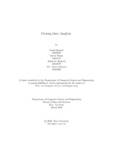| dc.contributor.advisor | Shakil, Arif | |
| dc.contributor.advisor | Sadeque, Farig Yousuf | |
| dc.contributor.author | Ahamed, Kasfi | |
| dc.contributor.author | Haque, Fardin | |
| dc.contributor.author | Rasheed, Ahnaf Ar | |
| dc.contributor.author | Rahman, Md. Arban | |
| dc.date.accessioned | 2023-08-06T04:35:53Z | |
| dc.date.available | 2023-08-06T04:35:53Z | |
| dc.date.copyright | 2023 | |
| dc.date.issued | 2023-03 | |
| dc.identifier.other | ID 19101094 | |
| dc.identifier.other | ID 19101333 | |
| dc.identifier.other | ID 23141079 | |
| dc.identifier.other | ID 19101106 | |
| dc.identifier.uri | http://hdl.handle.net/10361/19289 | |
| dc.description | This thesis is submitted in partial fulfillment of the requirements for the degree of Bachelor of Science in Computer Science and Engineering, 2023. | en_US |
| dc.description | Cataloged from PDF version of thesis. | |
| dc.description | Includes bibliographical references (pages 55-56). | |
| dc.description.abstract | Car parking is a hassle for everyone in one word, but when it is in a country where
population is an issue, parking problems can easily stress someone out. Car parking
is a key contributor to traffic congestion and has been, and continues to be, a big
concern as car sizes grow in the luxury category, limiting parking spots in metropolitan
areas. The problem of a shortage of parking spaces is becoming more acute as
the number of automobiles on the road grows rapidly across the world. Many countries’
issues will increase without a planned and convenient withdrawal from the
vehicle as the world’s population continues to urbanize. Because it is impossible to
handle the growing number of automobiles in a proper, comfortable manner with
the present unmanaged car parks and transit amenities, an efficient and smart parking
system is required. Here, An examination will be undertaken on a dataset of
parking occurrences in this Learning Analytics Visualization project. This analysis
will be able to answer some of the most crucial questions that may ease the parking
problems. The use of parking spots will increase as a result of the implementation
of this system. | en_US |
| dc.description.statementofresponsibility | Kasfi Ahamed | |
| dc.description.statementofresponsibility | Fardin Haque | |
| dc.description.statementofresponsibility | Ahnaf Ar Rasheed | |
| dc.description.statementofresponsibility | Md. Arban Rahman | |
| dc.format.extent | 56 pages | |
| dc.language.iso | en | en_US |
| dc.publisher | Brac University | en_US |
| dc.rights | Brac University theses are protected by copyright. They may be viewed from this source for any purpose, but reproduction or distribution in any format is prohibited without written permission. | |
| dc.subject | Prediction model | en_US |
| dc.subject | KNN | en_US |
| dc.subject | Decision tree | en_US |
| dc.subject | Forecast model | en_US |
| dc.subject | Random forest | en_US |
| dc.subject | Naive Bayes Classifier | en_US |
| dc.subject | Support Vector Machine | en_US |
| dc.subject | Bangladesh parking location | en_US |
| dc.subject | Raw data set | en_US |
| dc.subject.lcsh | Machine learning | |
| dc.title | Parking data analysis | en_US |
| dc.type | Thesis | en_US |
| dc.contributor.department | Department of Computer Science and Engineering, Brac University | |
| dc.description.degree | B. Computer Science and Engineering | |

